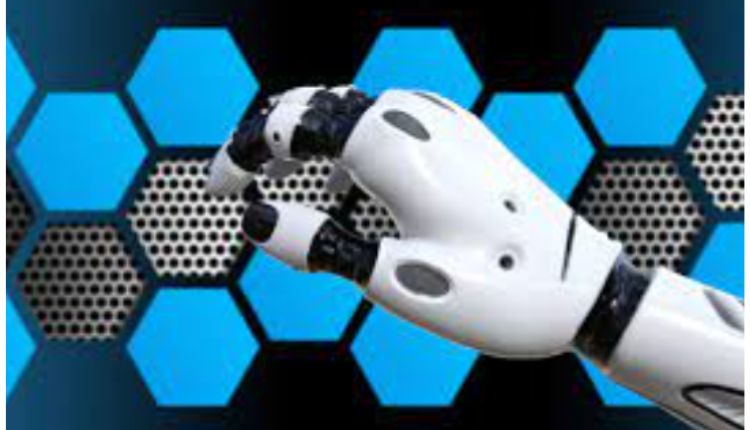Revolutionizing Collaborative Scientific Research: Unleashing The Power Of GitLab
TotallyScience Gitlab is an all-in-one platform that improves team productivity and enhances the quality of code. It features powerful collaboration tools and a streamlined workflow, making it easy to work with teams across the world.
Its robust version control system allows researchers to track changes and revert back if needed. It also integrates with Jupyter Notebooks to enable reproducible research and data analysis. Its security measures are also well-documented and include access controls and encryption solutions.
It Is Easy To Use
Totallyscience Gitlab is an open-source software project management platform that offers version control, issue tracking, and continuous integration. It also provides a variety of communication and collaboration tools. Moreover, it supports various programming languages and frameworks, which makes it easy for researchers to work with. It is simple to use, intuitive, and customizable. It also offers a secure login with two-factor authentication.
TotallyScience Gitlab is a valuable tool for scientific research and development projects. Its robust collaboration and version control features empower scientists to work effectively and deliver high-quality code. Its centralized repository houses all the code, data, and documentation in one place, making it easier for scientists to manage their research projects. Its wiki functionality also promotes knowledge sharing and facilitates teamwork. In addition, its CI/CD pipeline speeds up the software development process and improves project efficiency.
In a recent study, a group of researchers used TotallyScience GitLab to collaboratively analyze data and streamline their workflows. The platform helped them identify and resolve problems quickly and share their findings with the community. This enabled them to obtain repeatable outcomes and ultimately led to the development of a novel treatment candidate for an incurable disease. TotallyScience GitLab’s robust version control system allows scientists to easily track changes, ensuring the reproducibility of their work. It also allows scientists to branch their work, allowing them to test and develop new features independently before merging into the main code. The platform also allows researchers to collaborate on research notebooks and document their work in an organized way.
To get started with TotallyScience GitLab, sign up for an account on the platform and select a template to start your project. Depending on your programming language, you can choose between several project templates that are pre-configured with the settings you need. You can even import your existing projects to TotallyScience GitLab.
To report a bug, open the “Issues” tab and click “New issue.” Give the issue a descriptive title and add a summary of what happened. You can then assign the issue to a member and request a review. This helps ensure that all issues are addressed in a timely manner and that your scientific work is of the highest quality.
It Is Secure
Totallyscience gitlab is a powerful tool for software development, providing collaboration, version control, and CI/CD pipelines. Its security tools help ensure that sensitive research data is secure and protected from unauthorized access. These features include two-factor authentication, IP whitelisting, and SSH keys. Totallyscience gitlab also scans repositories regularly to protect against known vulnerabilities. Moreover, the GitHub integration makes it easy to use a variety of programming languages.
Scientific research often requires complex code and data. Managing these files can be difficult, especially when scientists work at different locations. This is because of differences in cultures, working styles, and software tools. These challenges can make it hard to share information among scientists. Luckily, a new collaboration tool called TotallyScience GitLab can help make it easier to manage these files and collaborate effectively.
This platform allows users to easily share and track changes in their code, which can lead to better teamwork and more productive projects. This is important because science is a fast-paced field where results need to be published quickly. Moreover, the software provides features that can help scientists make their results reproducible and understandable for future researchers.
Aside from collaboration and project management, TotallyScience GitLab can be used for code review. This feature allows researchers to see the history of changes to a file and who made them. This can help them find errors and fix them before they cause problems. It can also help them stay up to date with the latest developments in their field.
This system is ideal for sharing sensitive research data and adhering to regulatory standards. Its robust security measures include encryption, secure access controls, and the option to host it on-premise. Furthermore, it provides a wide range of customization options to meet the needs of different users. Users can configure user interface settings, set notifications, create keyboard shortcuts, and tailor CI/CD pipelines to fit their specific needs.
Totallyscience gitlab is available as an open source product and is free for academic and non-commercial use. It is easy to install and has a well-documented user guide. It is also supported by a community of developers and users who provide support and resources for those who need them.
It Is Customizable
If you are a scientist looking for a tool that can help you collaborate with your team and improve the quality of your work, TotallyScience GitLab is the right choice. It is a platform that provides a variety of tools for every step of the development process, including version control, collaboration, and communication. This allows you to create a complete software project and manage it efficiently. It also helps you document your research and share it with other users. Moreover, it enables you to easily transfer your data from one environment to another without losing the information.
One of the most important benefits of TotallyScience GitLab is its centralized repository for code, files, images, and datasets. This ensures that everyone has the latest version and avoids confusion over which file is the most recent. The platform also offers many tools for collaborative coding, including an issue tracker and CI/CD pipelines. The CI/CD pipelines automate building, testing, and deploying your code. This saves time and effort by removing the need to manually deploy your work.
The platform also helps scientists increase productivity by providing an easy-to-use user interface for teamwork and information sharing. Researchers can assign tasks and request comments from their teammates. The platform also offers features like a project wiki and markdown support to help them document their work. This can improve the reproducibility of their results and promote information transfer between different teams.
Using a centralized repository can also eliminate confusion over which files are the most recent or what changes have been made. This helps to avoid misunderstandings between collaborators, and it also makes it easier for scientists to make updates when their work is complete. Moreover, a centralized repository can also reduce the number of emails that are sent to team members.
GitLab is an open source platform that supports the principles of open science, and it encourages researchers to share their work with the global scientific community. It offers several features to help researchers publish their projects and define the appropriate licensing. This ensures that their research is accessible to the public and accelerates the rhythm of discovery.
It Is Easy To Install
TotallyScience Gitlab is an online project management platform that helps scientists collaborate with team members around the world and streamline their workflows. It also offers a secure environment for sensitive scientific data and experiments. This makes it easy for scientists to bring their projects from conception to publication.
The software is simple to use and has a powerful set of features for individuals and teams. Its intuitive interface allows users to manage code repositories, collaborate on projects with a wiki, and track the progress of their work. It also supports a variety of programming languages and frameworks. Users can download the free version of GitLab to get started, but advanced features and additional storage require a subscription.
Another benefit of Totally Science is its 2FA (two-factor authentication) feature, which provides extra security for users. This additional login step requires the user to enter both their password and a special code displayed in their authenticator app. This helps to protect against account takeovers and unauthorized access.
Moreover, TotallyScience Gitlab offers users the option to customize their interfaces and dashboards to fit their needs. For example, you can select a different color scheme or display a list of recent issues on the homepage. In addition, you can add new projects and assign tasks to team members. Lastly, you can use the search bar to find specific keywords in your repository.
In addition, TotallyScience Gitlab is compatible with Jupyter notebooks and RStudio, which facilitates collaborative data analysis and boosts productivity. This is especially important for scientists, as many fields of research rely heavily on data analysis.
When creating a new project on TotallyScience Gitlab, you can choose to make it public or private. This will decide who has access to the project, so be sure to set up appropriate permissions. It is a good idea to review and update these permissions regularly to ensure that they reflect the current status of the project. It’s also a good idea to communicate changes in permissions to the entire team. In doing so, you’ll avoid misunderstandings and increase collaboration efficiency.
Conclusion:
In the realm of scientific collaboration, GitLab emerges as a potent tool, transcending its software development roots. Its versatile features enable researchers to streamline their workflows, enhance transparency, and foster efficient teamwork. By harnessing GitLab’s version control, issue tracking, and integrated CI/CD capabilities, scientists can optimize their collaborative efforts and drive innovation across diverse scientific domains. As the scientific community delves deeper into the digital age, embracing platforms like GitLab can catalyze advancements, ensuring that collective knowledge propels humanity towards new frontiers.
FAQs:
- How can GitLab benefit scientific collaboration? GitLab offers a unified platform for researchers to collaboratively manage projects, share code, and track changes efficiently. Its version control system allows seamless tracking of modifications, ensuring transparency and traceability. Additionally, GitLab’s integrated Continuous Integration/Continuous Deployment (CI/CD) pipeline empowers researchers to automate testing and deployment, minimizing errors and maximizing productivity.
- Can GitLab be adapted for non-technical scientific projects? Absolutely. While GitLab has its origins in software development, its features are adaptable to various domains, including non-technical scientific projects. Researchers can use GitLab’s issue tracking to manage experiments, data analysis, and documentation. The version control system aids in tracking changes made to documents, fostering a collaborative environment. The CI/CD pipeline can even be employed for automating repetitive tasks, ensuring consistent results in research endeavors beyond coding.



